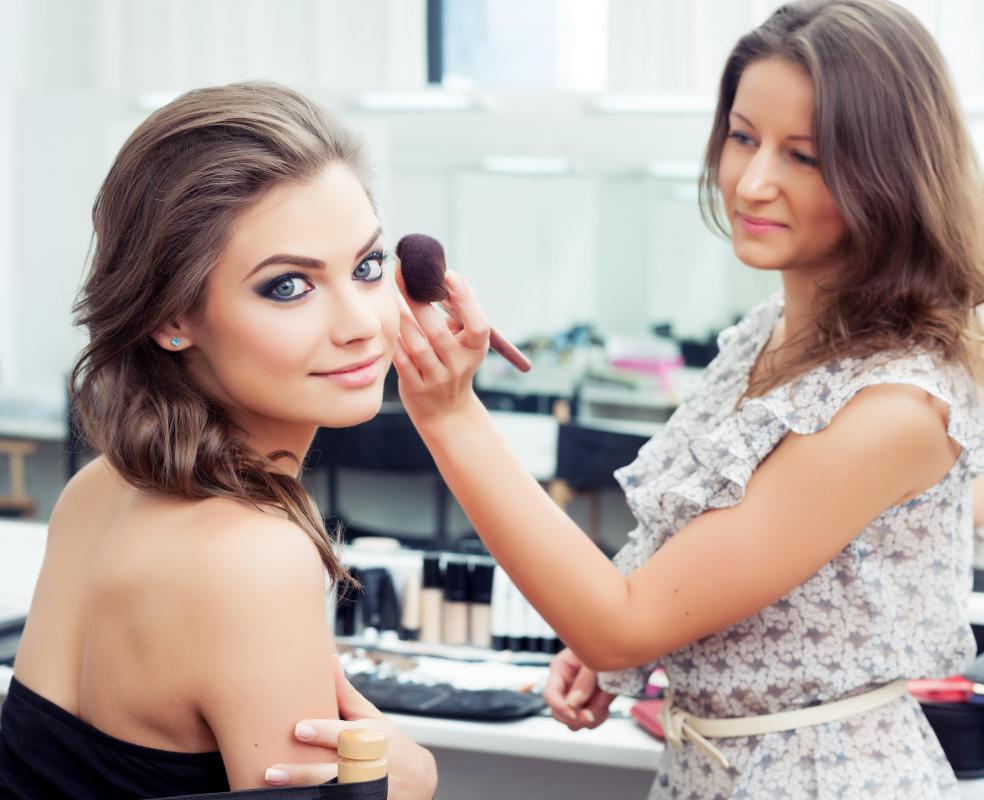At WiseGEEK, we're committed to delivering accurate, trustworthy information. Our expert-authored content is rigorously fact-checked and sourced from credible authorities. Discover how we uphold the highest standards in providing you with reliable knowledge.
How do I Become a Medical Esthetician?
The qualifications to become a medical esthetician vary by jurisdiction as well as by employer. In many places, professional licensing laws require that a person be licensed as a cosmetologist or esthetician before becoming a medical esthetician. Even those with training as a cosmetologist or esthetician may need to complete additional coursework or an internship before receiving certification as a medical esthetician. As the law governing the practice of esthetics varies so much, it is important that you check with the agency that licenses cosmetologists or estheticians in your area to find out if providing skincare and makeup services in a medical setting requires professional licensing.
Estheticians specialize in providing skin care and makeup services to the public. An esthetician's training typically includes training in skin care, makeup application, and hair removal. Estheticians may also be trained and licensed to perform non-therapeutic massage. A medical esthetician generally works in a health care setting and specializes in helping individuals who are coping with illness or the aftermath of surgery care for their skin and appearance. Many of these professionals decide to become a medical esthetician after working as a makeup artist or facialist in a salon.

In some places, the practice of cosmetology or skincare is highly regulated. In the United States, individuals who wish to become a medical esthetician must complete a course of study at a cosmetology or trade school. In many cases, an individual has the choice of completing an esthetician course that focuses on skincare, makeup, and hair removal or cosmetology that includes training in hairstyling and hair care. In general, graduates of either program can practice aesthetics once they have obtained appropriate licensure. If after you complete your education and get your license you wish to become a medical esthetician, you may need to take continuing education classes or apprentice with a working medical esthetician.

Individuals who have just had surgery or who are undergoing radiation treatments may find their skin is far more sensitive than it was prior to the surgery or illness. While it is always a good idea for these individuals to consult with a dermatologist about their skincare needs, a medical esthetician can introduce them to products suitable for their skin and train them in their application. By working with a medical esthetician, the client can develop a consistent skincare regimen. Medical estheticians may also train clients in the use of cosmetics that can help conceal skin irregularities, facial defects, or the side effects of illness and rigorous medical treatment.
AS FEATURED ON:
AS FEATURED ON:













Discussion Comments
@strawCake - I'm not sure what the job prospects are for medical estheticians overall, but I have a friend who completed a medical esthetician program. She didn't have any trouble getting a job afterwards, although she had already worked as a cosmetologist, so I think that helped.
My friend works at a hospital, which is a pretty good option for esthetician jobs. Hospitals need medical estheticians in burn units as well as the oncology unit. Both of these types of patients need assistance with skin care and sometimes with makeup application.
@ceilingcat - That's terrible. I definitely agree that this field should be regulated. Even if a mistake doesn't kill someone, I imagine it could be devastating for someone who has already been sick with cancer or something. Imagine going to a medical esthetician for help feeling better about yourself and leaving in worse shape than you already were?
I'm not sure what the exact regulations are in my area, but I see advertisements for medical esthetician school all the time. They promise to train you for a "great paying and rewarding career." I have to wonder what the employment prospects for this job actually are.
I think the field of medical esthetics should be very regulated, and not just at the state level. I read a horrible article a few years ago about a woman who died after receiving treatment at one of those med spas.
The medical esthetician who was assisting with laser hair removal had administered the anesthetic improperly. The patient had a bad reaction and died. I specifically remember the article saying that the person who administered the anesthetic didn't have any kind of medical training. Why was she working in a med spa?
Post your comments